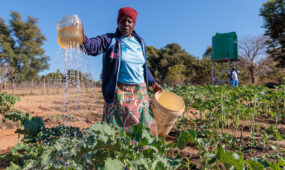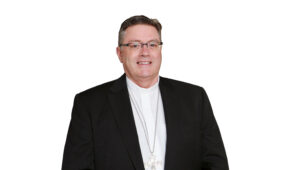Call for local action on economic issues
National
Catholics need to be more proactive about showing their support for the vulnerable by holding community meetings and lobbying politicians and business leaders, joining public debate and considering areas of economic exclusion in their own neighbourhoods.
That’s the message of the Australian Catholic bishops in this year’s Social Justice Statement Everyone’s Business: Developing an inclusive and sustainable economy.
The bishops’ statement is inspired by the teachings of Jesus and the unswerving vision of Pope Francis that the most vulnerable and excluded are the ones who need to take “first place in our hearts and in our actions” as individuals and as a society.
Advertisement
“We must do more,” the bishops wrote.
“We are called to give voice to those who have been cast aside and, in solidarity, to call for an inclusive economy at the service of all.
“Consider holding community meetings about the issues that concern you. Meet with local politicians, local council members, trade union and business leaders who have the means to help address the causes of human need in your community. Join public and media debate – raising your concerns, challenging views that scapegoat or condemn the vulnerable, and imagining a new inclusive economy where the needs of the last are put first.”
The statement reiterates Pope Francis’ call for each Christian and every community to consider where the economy fails to serve the common good and where it excludes the vulnerable.
Social Justice Sunday, held on September 24, was used to remind the Catholic community and broader society to consider where the economy serves us well and where it fails.
“Who are the ones excluded by the economy of today’s world?” the bishops asked.
Advertisement
“What is their experience and what do we need to do to ensure the economy works for every person and for society as a whole? The answer is before us, in our streets and our communities, in the many groups who have been disadvantaged by the operation of the economy.
“Being open and informed about the plight of the ‘poor’ helps avoid any condemnation of people in need as being ‘undeserving’ or to blame for their own plight.
“Consider the key areas of economic exclusion in your neighbourhood. It may be issues like homelessness, environmental degradation, youth unemployment or cuts to Sunday penalty rates.
“Work with others in your parish and local community to research the issue and to raise local awareness, including with other groups who hold similar concerns.”
The bishops recognised the importance of supporting services such as Centacare, St Vincent de Paul Society and other community groups but stressed that “we need to do more”.
“Building a just economy, one that serves everybody and cares for the most vulnerable, is a task for us all, not just for politicians and technocrats,” they wrote.
“God’s bounty and love has provided for human flourishing and the human good. He calls each of us to use that bounty wisely for the good of all – all his creatures and the planet we live on.
“Inspired by the Gospel, we are all called to take part in the process of transforming our economy so that it better promotes a more inclusive, equitable and sustainable society.”








Comments
Show comments Hide comments